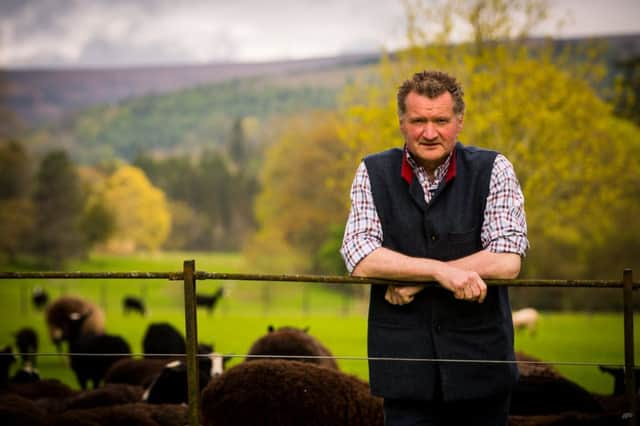Q&A with Ross Murray: A properly funded agricultural plan is paramount


What must farming do to make the most of the potential opportunities of ‘Brexit’?
As landowners and farmers, we need to face the future, we need to stop being islands and operating independently, we need to co-operate and look up the food chain and force a much more vertical relationship with who we supply our produce to. And government’s got a massive role - they need to think very carefully about a whole canopy of legislation which affects tenancies, regulation, all sorts of things and in a way what Brexit has given us is an opportunity to be radical and start with a clean sheet of paper which otherwise we wouldn’t have had.
Advertisement
Hide AdAdvertisement
Hide AdIn terms of that blank sheet of paper, would some kind of subsidy model remain on there?
I wouldn’t use the word subsidy, I think it is going to be fundamentally one of support based around public goods. In terms of individual support there is a public mood that there is going to be support for payment for public goods and we need to identify what those are because to be quite frank farmers have been doing a lot of things that are public goods for no return or reward for many, many years. We need to price those and articulate a view to government that there needs to be public investment in what we are doing for the countryside and the environment.
Secondly there needs to be significant investment in the sector as a whole to make it more productive and the third area is going to be the rural economy and specific things, the LEADER programmes, and there are two prizes here. One is something that is acceptable to government, to the industry and indeed to the general public going forward and secondly that there is an appropriate budget to match.
What is spent on agriculture and the rural economy through support via Europe at the moment, when the whole of the money is repatriated from Europe, it’s going to be actually half what the government actually gives to the Commission so why would be asking for anything less than was there at the moment?
Advertisement
Hide AdAdvertisement
Hide AdWhat are your concerns about the current business rates re-evaluation?
There are real pinch points, livestock markets are one of them, bed and breakfasts is another. All of a sudden there is a huge community of farmers and landowners who have diversified into holiday accommodation and suddenly finding the ratings assessment going up.
Government has said that they will give concessions in one place but it has to be paid for by another, the total income from rates has to stay the same and we have to be careful of course not to produce special pleading because of course there are a lot of businesses in urban situations, particularly retail which are saying exactly the same thing.
Rural tourism is a huge part of the rural economy. Is there is still a lot of potential to realise and how do we unlock that?
Advertisement
Hide AdAdvertisement
Hide AdThere’s massive potential and we have the good fortune of a weaker pound at the moment so that should bring more people in and we need to capitalise on that. Tourism does require investment, we all need to spend money on facilities and so the taxation basis of our investment has to be right, has to be incentivised and we have to have the infrastructure in the most remote places. There is such an enormous part of the economy around tourism but you need to keep on investing and improving standards. The tourists will just go somewhere else is you are not improving all the time.